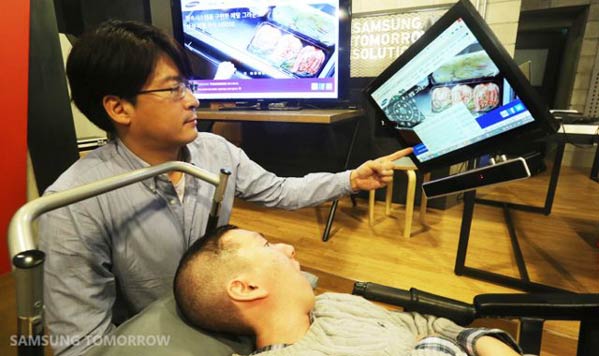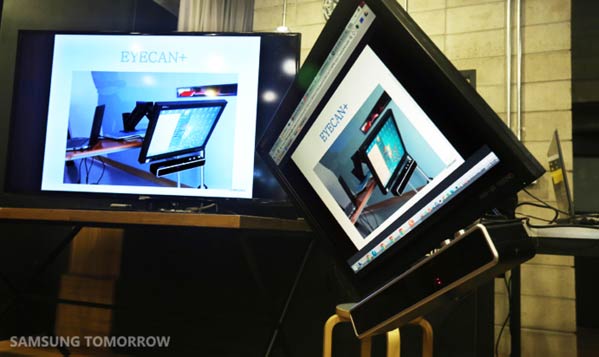Samsung showed off a mouse designed especially for people with disabilities on Tuesday. The peripheral uses next-gen eye-scrolling technology that tracks the movements of a user's eyes. Named the EYECAN+, the company's second generation eye mouse, succeeding the original EYECAN announced a couple of years ago, is capable of allowing users with disabilities to compose and edit documents and browse the web through simple eye movements alone.

The glasses-free eye mouse is a single-unit, portable box which sits below a computer monitor and utilises a sensor to read the user's eye movements. It can wirelessly calibrate with the user's eyes and registers a blink of the eye as a click of the mouse to activate any of the 18 basic computer commands including copy, paste, select, scroll, zoom in and drag and drop.
Samsung previously included similar eye-scrolling technology in its Galaxy S4 smartphone with the Smart Scroll function that allowed its smartphone front-facing camera to track the user's retinal movements. Interestingly Smart Scroll functionality was not present in the Galaxy S5 when it was launched as Samsung's flagship smartphone.
In addition to the 18 basic commands programmed-in, users can also create custom keystroke commands such as close program and print. Compared to its predecessor the EYECAN+ has been significantly upgraded with improvements to calibration sensitivity and overall user experience. The original EYECAN also required the user wear an attachment on some spectacles.

Open source plans
The device is said to be the first of its kind and to drastically enhance ease-of-use for people with disabilities. However it will not be commercialised by Samsung as it plans to only manufacture a limited quantity before donating them to charity organisations. "EYECAN+ is the result of a voluntary project initiated by our engineers, and reflects their passion and commitment to engage more people in our community," said SiJeong Cho, Vice President of Community Relations at Samsung Electronics. The company added that the technology and design of EYECAN+ will be made open source and accessible to companies and organisations that wish to commercialise similar devices.













